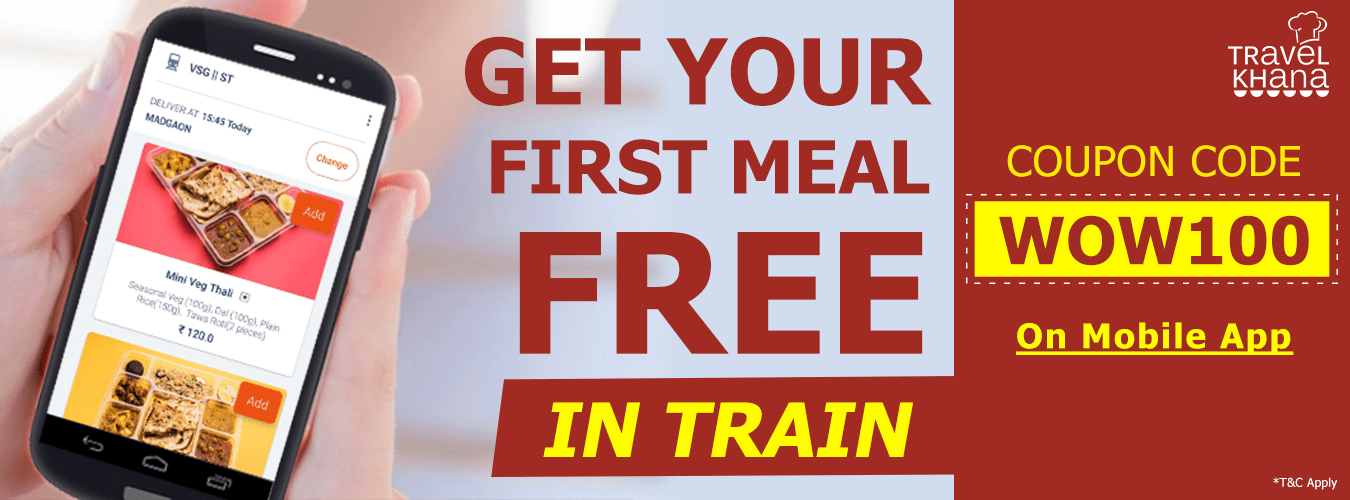Food on trains was a pernicious issue while travelling on Indian Railways. People generally dreaded travelling by long distance train because of the poor quality of food and would undertake a journey only if it was absolutely unavoidable.
Food service on Indian trains was mostly by the following means:
- Vendors of food items with or without license who would descend on passengers at various railway stations
- Food kiosks at railway stations and their agents who would sell their wares on the train when it stopped at stations
- Snack and soft drinks vendors who plied their wares on running trains
- Pantry car service: Pantry cars attached to long distance trains that would send their employees to take orders from passengers at their seat and deliver the food to them without fail.
The main items offered by pantry cars were coffee, tea, snacks, and soft drinks. For breakfast, they would serve bread and omelets or Idli-vada/ upma. For lunch and dinner, there was standard fare- Vegetarian or non vegetarian Thali and Vegetarian or Non vegetarian biryani.
The positive aspect about these meals was that they were very reasonably priced and accessible to all classes of passengers. But the negatives are too many: The fare is boring without much choice. Taste and flavour was insipid. Worst was the fact that the hygiene was most often compromised with little cleanliness while cooking or packaging the meals.
Hence, most passengers tried to find their way around having to order these meals. They would pack their own food alternatives that would last as long as possible like Poories or Lime rice. They would settle for biscuits and bakery items purchased before journey. Or they would simply fill their stomachs with packaged snacks like potato chips sold on the train, which would be hygienically packed.
By e-catering is meant that passengers can order their meals online from companies, which have tied up with restaurants on the go, at stations which the train passed by.
Tarvelkhana.com works by tying up with food vendors near stations across India. Restaurants are tested for quality of taste and cleanliness of packaging, so the customer gets freshly packed food, right at their seats.
Travelkhana has won plaudits in the business like the 2014 IAMAI award for Best Travel Website and Start-Up of the Year, 2013 by CNBC TV 18. From test running on 5 stations, it now caters to over 500 cities. The potential for the service in the future is immense.
